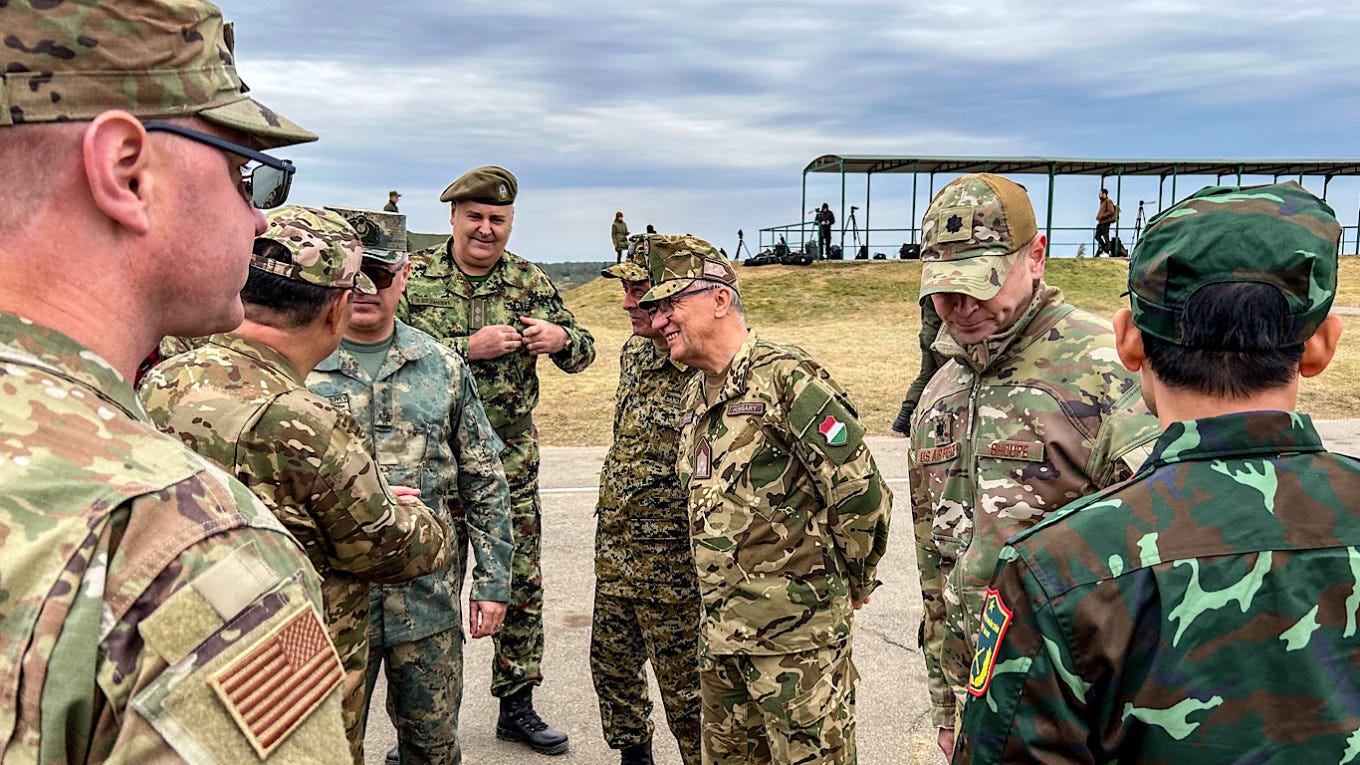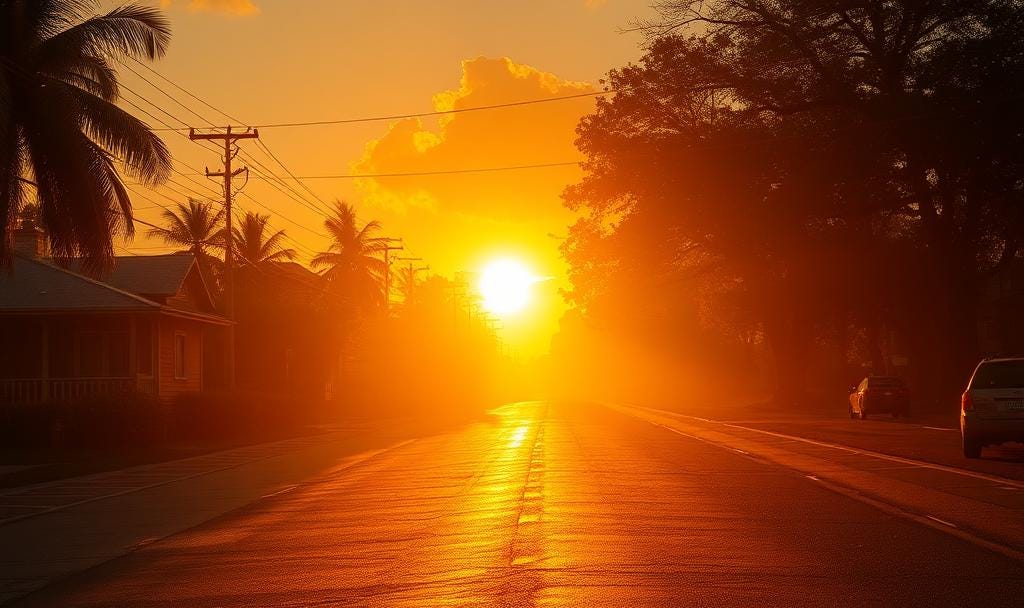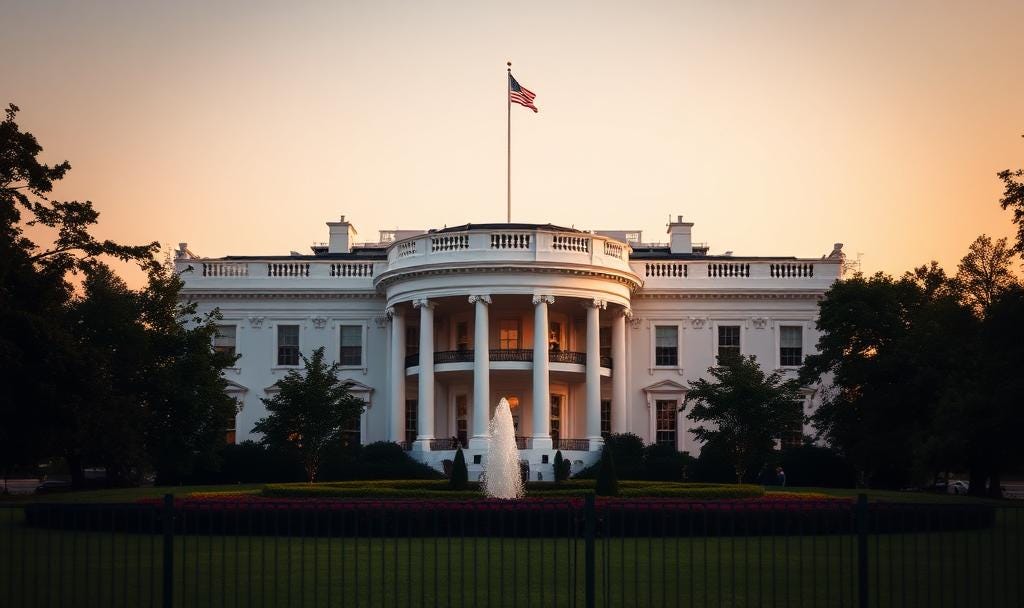10 Things Global News - 17th September 2025
The news from around the world
UN Inquiry Accuses Israel of Genocide
US Observes Russia–Belarus ‘Zapad-2025’ Drills
India Joins Russia-Belarus Drills With Nuclear Rehearsal
Russia Ups Network For Indoctrinating Ukrainian Children
Heatwaves Linked to Thousands of Extra Deaths in Europe
Australia–PNG Defence Pact Delayed
UN Curbs Staff At Brazil’s COP30 Over Hotel Costs
Trump Clashes With Australian Journalist At White House
Trump Arrives in UK for Second State Visit
China Trials First Domestic AI Chipmaking Tools
On this day …..
On this day in 2011 the Occupy Wall Street protest started. This movement, seeking to protest against economic inequality & corporate corruption, eventually spread to sites across the globe.
The protesters slogan “We are the 99%” resonated and went some way to reframing the global conversation about economic disparity, however its ultimate success is open to debate.
A United Nations commission of inquiry has concluded there are reasonable grounds to believe Israel has committed genocide in Gaza during its war with Hamas. The panel, chaired by former UN human rights chief Navi Pillay, found four of the five genocidal acts defined in international law had been carried out. These included killing members of the group, causing serious bodily and mental harm, deliberately inflicting destructive living conditions, and preventing births.
The report attributed responsibility to the State of Israel and specifically cited Prime Minister Benjamin Netanyahu, President Isaac Herzog and former Defence Minister Yoav Gallant.
Israel categorically rejected the findings, calling them distorted and false. Officials said its operations in Gaza were acts of self-defence against Hamas, which killed more than 1,100 Israelis in October 2023. Israel’s foreign ministry accused the commission of acting as “Hamas proxies”, while leaders said its military acted within international law.
The International Court of Justice is separately hearing South Africa’s case accusing Israel of genocide, though it may take years to conclude.
Sources: BBC, Al Jazeera, UN
The Pentagon confirmed that US military officials observed joint Russia–Belarus “Zapad-2025” war games in Belarus, accepting an invitation to attend a Distinguished Visitor day. It is the first such US observation since Russia’s 2022 invasion of Ukraine. Photographs showed US officers among international observers, alongside Russian deputy defence minister Yunus-Bek Yevkurov. A Pentagon spokesperson said attendance followed recent bilateral engagements and noted that the incoming and outgoing defence attachés were able to attend due to timing.
Ivan Belopushkin / TASS
The visit came less than a week after Poland shot down Russian drones that crossed its airspace and as Washington seeks warmer ties with Minsk. President Donald Trump last week lifted sanctions on Belarus’s national airline, Belavia, after President Alexander Lukashenko agreed to free 52 prisoners, including journalists and political opponents. Trump’s representative John Coale was in Minsk, signalling a desire to reopen the US embassy and revive trade.
Sources: Reuters, European Interest
India has sent 65 troops to take part in the Russian-led Zapad-2025 military exercises, where Russia and Belarus rehearsed the use of tactical nuclear weapons and deployed the Oreshnik hypersonic missile. Belarus confirmed the simulated strikes, describing them as part of wider manoeuvres to test defence and retake lost territory. Around 13,000 troops were involved, far fewer than the 200,000 that took part in the 2021 drills.
Russian President Vladimir Putin attended in person, calling the war games essential for defending the “union state” of Russia and Belarus. Belarusian leader Alexander Lukashenko insisted the exercises covered everything “from small arms to nuclear warheads,” while stressing there was no intention to threaten others.
The drills, held as NATO raised alerts in Eastern Europe, were also observed by delegations from NATO states, including the US. Participation by India, Iran and other countries highlighted Moscow’s continuing international links despite global tensions
Sources: Al Jazeera, Moscow Times
Russia is running an extensive programme to re-educate and militarise Ukrainian children from occupied areas, according to a new Yale study. Investigators documented at least 210 sites across Russia and occupied Ukraine — nearly twice what was expected — including cadet schools, summer camps, orphanages and religious institutions. At least 62% of these sites showed evidence of indoctrination, while 19% offered military training, including weapons drills and grenade-throwing competitions.
The report describes a “pipeline” of deportation, re-education and militarisation, with children taught Russian language and culture before entering cadet academies. Researchers called it the largest state-run abduction programme since World War II.
Russia argues that children were evacuated for their safety, but the findings add weight to war crime allegations already under investigation by the International Criminal Court. Evidence suggests Moscow is expanding capacity, with new camps under construction, raising concerns that the system could hold tens of thousands more children.
Sources: New York Times, The Guardian
Scientists estimate that extreme heat this summer caused around 24,400 excess deaths in European cities, with roughly 16,500 attributed directly to climate change. Researchers used climate models to assess conditions in 854 urban areas, finding that average summer temperatures were 2.2 degrees Celsius higher than they would have been without human-driven warming. They concluded that climate change roughly tripled heat-related deaths across the continent.
Rome, Athens and Paris recorded the highest number of deaths linked to global warming, while Stockholm, Madrid and Bratislava were among the capitals with the greatest share of fatalities attributable to climate change. Nearly 70 percent of victims were aged 65 or older, highlighting the vulnerability of older populations.
Experts stressed that nearly all heat-related deaths are preventable, yet rising temperatures are outpacing societies’ ability to adapt. They warned that heatwaves are becoming Europe’s “silent killers” as climate impacts accelerate.
Sources: New York Times, France 24
A landmark defence treaty between Australia and Papua New Guinea has been delayed after PNG’s cabinet failed to approve the agreement. Instead, the two governments signed a joint communique confirming the text and pledging to finalise the deal in coming weeks. The so-called Pukpuk treaty would commit the countries to defending one another in the event of a military attack and allow joint training, technical cooperation and service across each other’s defence forces.
Prime Minister Anthony Albanese and his PNG counterpart James Marape both downplayed the delay, citing independence celebrations and cabinet procedures. Marape stressed the initiative had come from PNG and insisted the pact would not compromise sovereignty, while Albanese described it as an historic step forward.
However, critics in PNG warned of constitutional risks, and Australia’s opposition called the delay an embarrassment. Analysts noted the setback follows another postponed agreement with Vanuatu amid regional competition with China.
Sources: ABC News, The Guardian
The UN climate secretariat has urged UN bodies to reduce delegation sizes for COP30 in Belém, citing high accommodation prices and limited capacity. Governments are also struggling to secure rooms within budgets, amid calls from some to relocate the summit — a move Brazil has rejected while expanding hotel capacity.
In guidance published online, Simon Stiell asked agencies to review the size of their delegations and cut numbers where possible. Brazil’s COP30 presidency said it would secure 15 single rooms priced between $100 and $200, and supports raising the UN per diem ceiling for Belém. An official summary shows the UN asked Brazil to subsidise hotel rates to around $100 per day for the poorest-country delegates and $400–$500 for others;
Brazil said it could not offer further subsidies, though it has offered poorer nations rooms capped at around $200 per night.
Sources: Reuters, The Guardian
President Donald Trump clashed with Australian journalist John Lyons on the White House lawn after being asked how much wealthier he has become since returning to office. Trump said he did not know, adding that his children handled the family businesses and that most deals were made before. He accused the reporter of “hurting Australia” and said he would tell Prime Minister Anthony Albanese, before silencing further questions with “quiet”.
Albanese, who is seeking a meeting after talks were cancelled at the G7 when Trump left early, said they would see each other in New York during the UN General Assembly.
The exchange came amid strains in ties, including a US review of the AUKUS submarine pact and an April tariff of at least 10% on all Australian exports. A White House social media post amplified the moment, while ABC said Lyons’ questions were part of a Four Corners inquiry into Trump’s business dealings.
Sources: BBC, South China Morning Post
President Donald Trump has arrived in Britain for his second state visit, combining royal ceremony with trade talks and a major investment announcement. Greeted at Stansted Airport by Foreign Secretary Yvette Cooper, Trump described the UK as “a very special place” and called King Charles “my friend”. He and First Lady Melania Trump are staying at Winfield House before a day of pageantry in Windsor, including a carriage procession, guard of honour and state banquet.
The visit coincided with the announcement of a £31bn investment package by US technology firms, including £22bn from Microsoft, covering artificial intelligence, quantum computing and nuclear power. Trump also hinted at possible refinements to an existing trade deal, though hopes of removing a 25% tariff on UK steel exports remain stalled.
While leaders spoke of deepening ties, protests flared outside Windsor Castle, where activists projected images linking Trump to Jeffrey Epstein before being arrested.
Sources: BBC, Sky News
China’s largest chipmaker, Semiconductor Manufacturing International Corporation (SMIC), has begun testing the country’s first advanced domestically built lithography machine. Developed by Shanghai-based start-up Yuliangsheng, the deep-ultraviolet equipment is being trialled to support production of processors for artificial intelligence.
The effort marks a step towards reducing reliance on Western suppliers, particularly Dutch firm ASML, whose most advanced machines are restricted under US export controls.
Early results are promising but it remains unclear when the equipment will be ready for mass production. Experts note that moving from prototype to stable industrial use may take several years. Investors responded positively, with SMIC shares rising 5% in Hong Kong and other Chinese semiconductor firms also gaining.
The trial is part of Beijing’s broader push to boost chip self-sufficiency, although the country still lacks access to the most advanced extreme ultraviolet tools needed to rival global leaders such as TSMC and Nvidia.
















